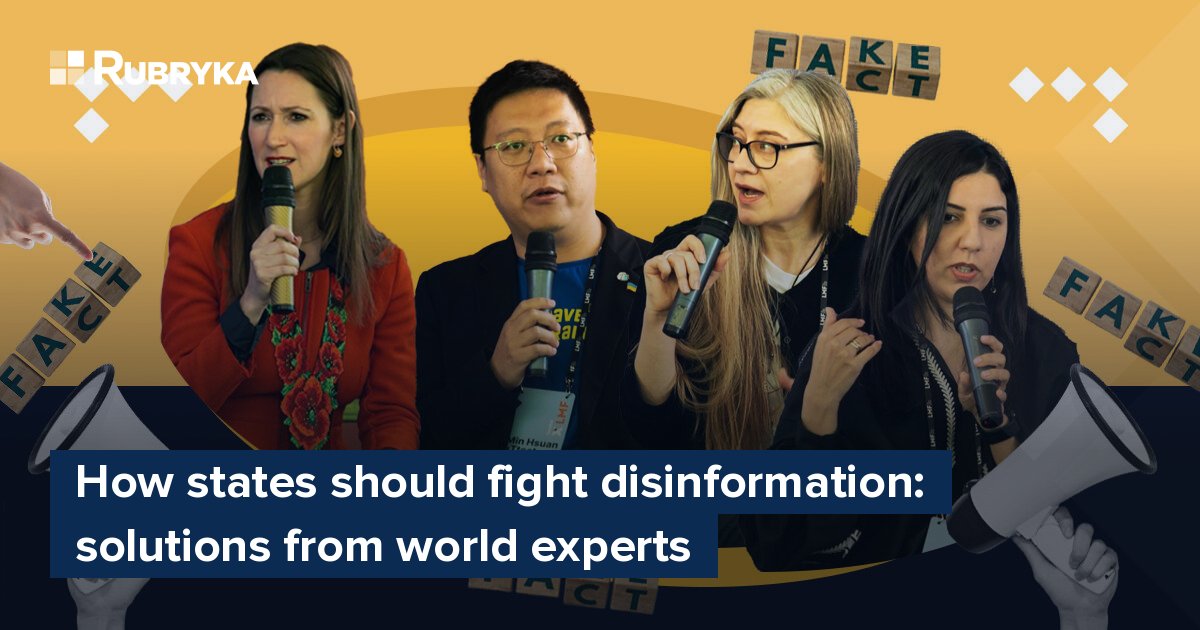
What is the problem?
Ukrainian society is constantly under the influence of Russian disinformation. According to discussion moderator Yarema Duha, one of the most common narratives is about a scary NATO that wants to seize Ukraine's territory to build military bases on it. Russia has been working to impose this narrative on Ukraine for more than 15 years.
Another narrative of Russian disinformation began to spread rapidly after the start of the Israel-Hamas war. The narrative claims the militants of the terrorist group had NATO weapons, which were sold to them by Ukraine. The Russians constantly use the tactic of blaming NATO soldiers and Ukraine in any world incident.
"I am always amazed at how many things Ukrainians manage to do. Where do we find the time?" Tetiana Lokot, associate professor of digital media and society at the School of Communications at Dublin City University, wonders with a smile.
One of the latest examples is the terrorist attack in "Crocus City Hall" in Moscow. It is obvious that there was, again, a lot of talk about Ukraine's involvement. However, it is worth paying attention to how quickly artificially generated and deeply fake videos appeared, where the former National Security and Defense Council chairman, Oleksii Danilov, praises this attack.
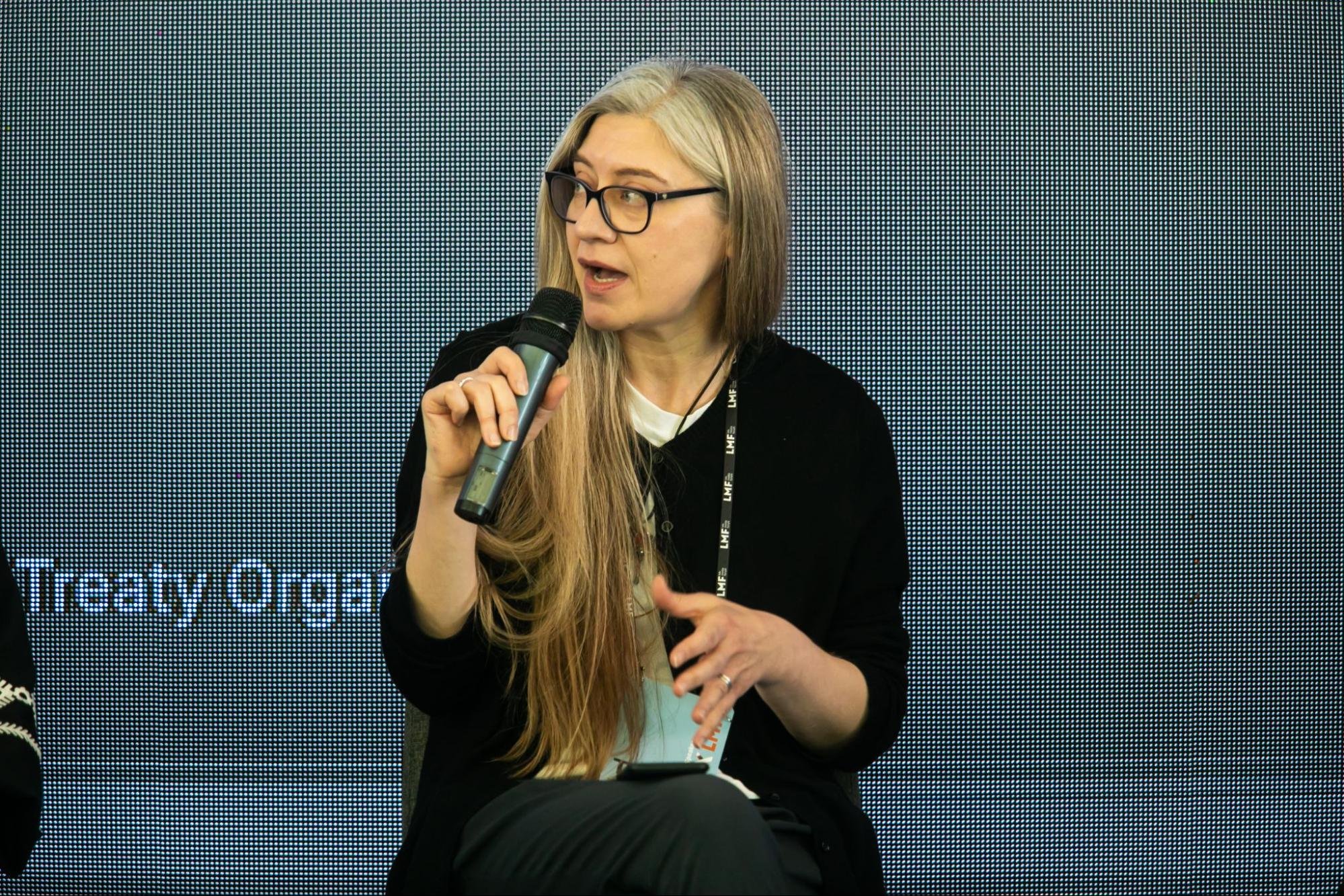
Tetiana Lokot at the Lviv Media Forum. Photo: LMF
Min-Hsuan Wu, Taiwanese activist, co-founder, and CEO of DoubleThinkLab organization, said that the Russians spread their disinformation not only to the Western world but also to Asia. In particular, when Russia's full-scale invasion of Ukraine began in 2022, a hoax about Ukrainian neo-Nazis responsible for the 2019 events in Hong Kong gained popularity.
Then, a series of protests began against the government's proposal to change the law, allowing extradition to mainland China. One of the rallies was joined by several former Ukrainian soldiers who came on vacation and posted their photos on social networks. They were picked up by Russian TV channels and began to spread the message: "Ukrainian neo-Nazis, financed by the USA, came to Hong Kong to sponsor protests."
"In 2019, even the Chinese didn't buy it, and no one paid attention to it. But when the war started, this news was reworked and resurfaced on social networks and even state media," says Min-Hsuan Wu, also known as Ttcat.
He also says that Chinese propaganda about Taiwan is quite similar to Russian propaganda, claiming that Taiwan is part of China, and the Taiwanese don't exist and they're just other Chinese. They also spread the narrative of lying Americans who constantly promise support but, in reality, allegedly manipulate the country.
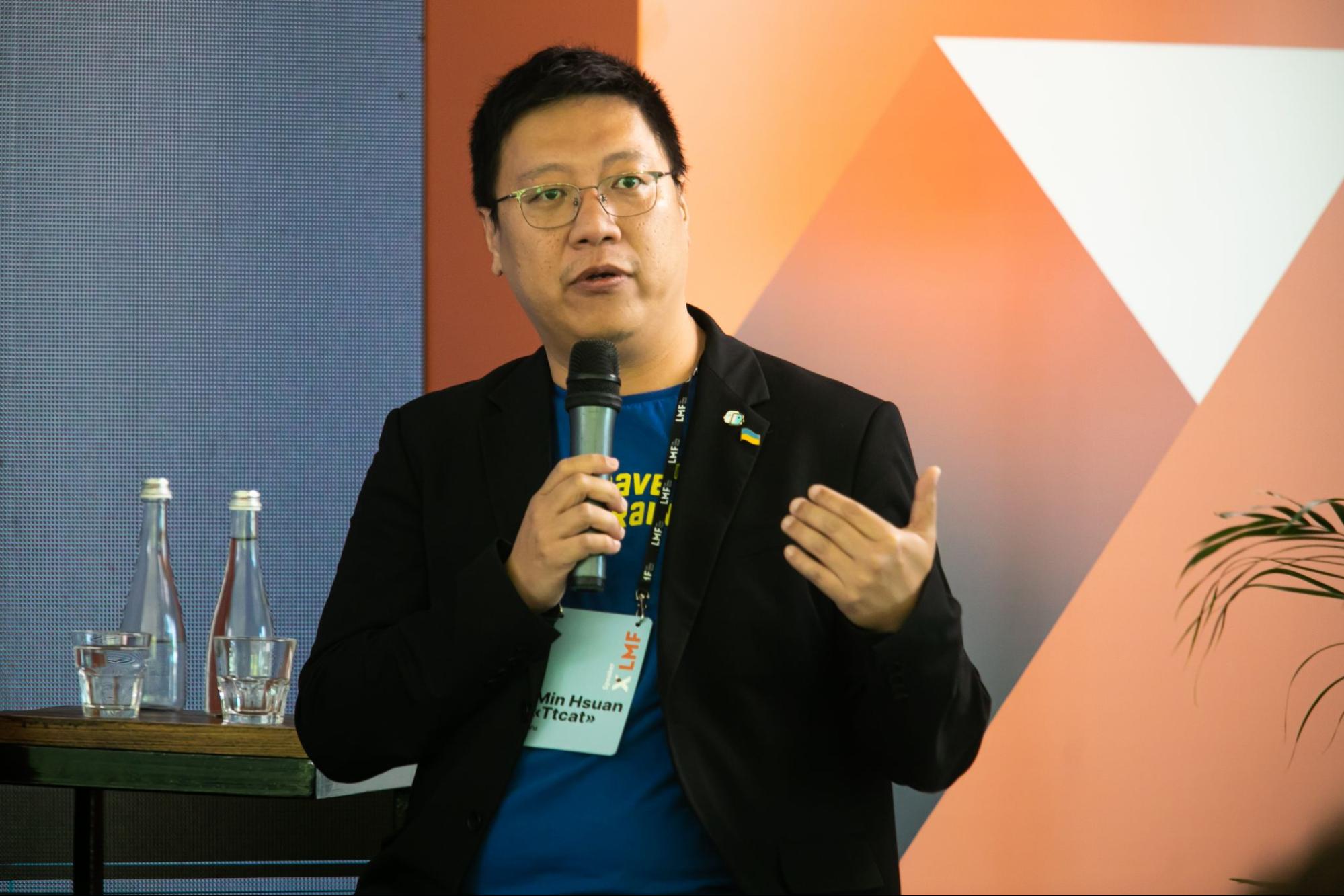
Min-Hsuan Wu at the Lviv Media Forum. Photo: LMF
During the discussion, Anait Hoperia, who worked at the Ministry of Justice in the Department of International Conflicts and was engaged in protecting Ukraine's rights and interests, also mentioned the Black Hole campaign—spreading the message that Volodymyr Zelensky is a "black hole" in which Western money disappears and Ukraine is a failed state.
What is the solution?
Disinformation has long been part of some countries' aggressive actions against others. To counter hostile information attacks more effectively, it is necessary to work together and exchange experience. That is why the tenth Lviv Media Forum brought together representatives of NATO, the EU, Asia, and Ukraine, who sought answers to the question of how states can fight disinformation.
How does it work?
Experts immediately determined that one of the most important components of countering disinformation is monitoring enemy propaganda narratives. Marie-Doha Besancenot, NATO's Assistant Secretary General for Public Diplomacy, said that NATO has a separate analytical center that constantly monitors them in the mass media.
First, experts identify a new narrative and see how it spreads. If it does not go beyond the conspiracy zone and is perceived as a conspiracy theory, then such a narrative is not reacted to.
However, if it begins to be picked up by mass media, analysts warn media representatives about it. At the same time, a political reaction is equally important so that a relevant official can immediately officially refute this fake.
According to Besancenot, making sure that analysts are not too far away from those who might react politically, as well as from the press and the media is one of the key elements of an effective response to disinformation.
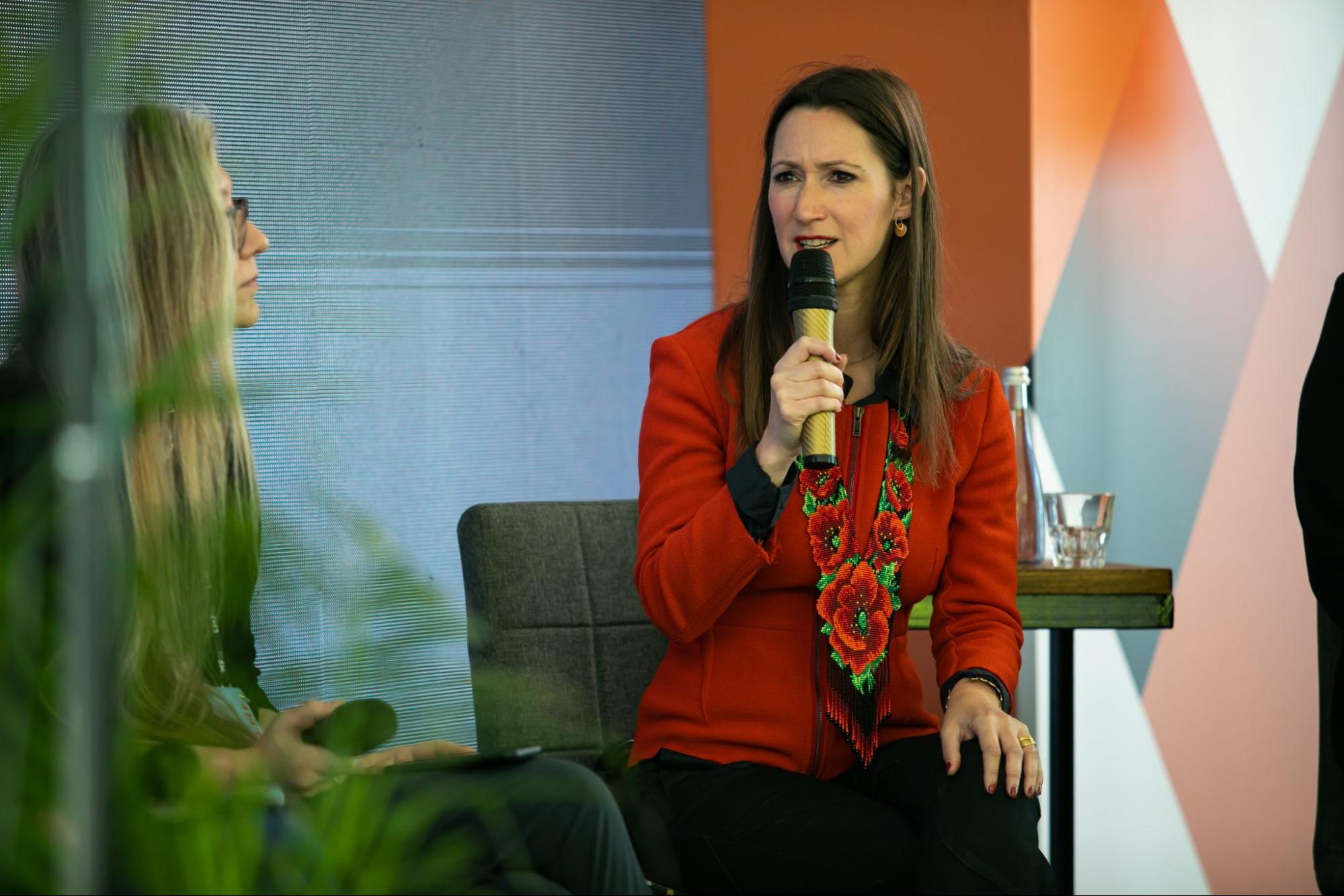
Marie-Doha Besancenot at the Lviv Media Forum. Photo: LMF
She also cites one of the last good examples of rapid political response — the French response to accusations of antisemitism. Such messages began to spread after the conflict between Israel and Hamas. Then, the Minister of Foreign Affairs of France came out with a statement that it is unknown who is behind it but confirmed that it came from outside the country.
Three weeks after this statement, the law enforcement officers found out that several people from Moldova, who were paid by the Russians, were responsible for spreading these messages. If the French authorities had responded only after that, such a refutation would have reached a much smaller number of people and would not have been effective.
Anait Hoperia agrees with this and adds that analysts should cooperate with special services in addition to politicians and journalists since disinformation is part of Russia's hybrid attacks and can pose a threat to national security.
At the same time, it is necessary to work with content distribution platforms and social networks to counter disinformation not only in the mass media but also there.
"We must block hostile disinformation by working with platforms like Meta or YouTube. It is important to reason why some channels should be blocked. For example, because they violate the laws. Now, not everyone likes this approach, advocating freedom of speech. However, freedom of speech ends when malicious influence begins," Hoperia explains.
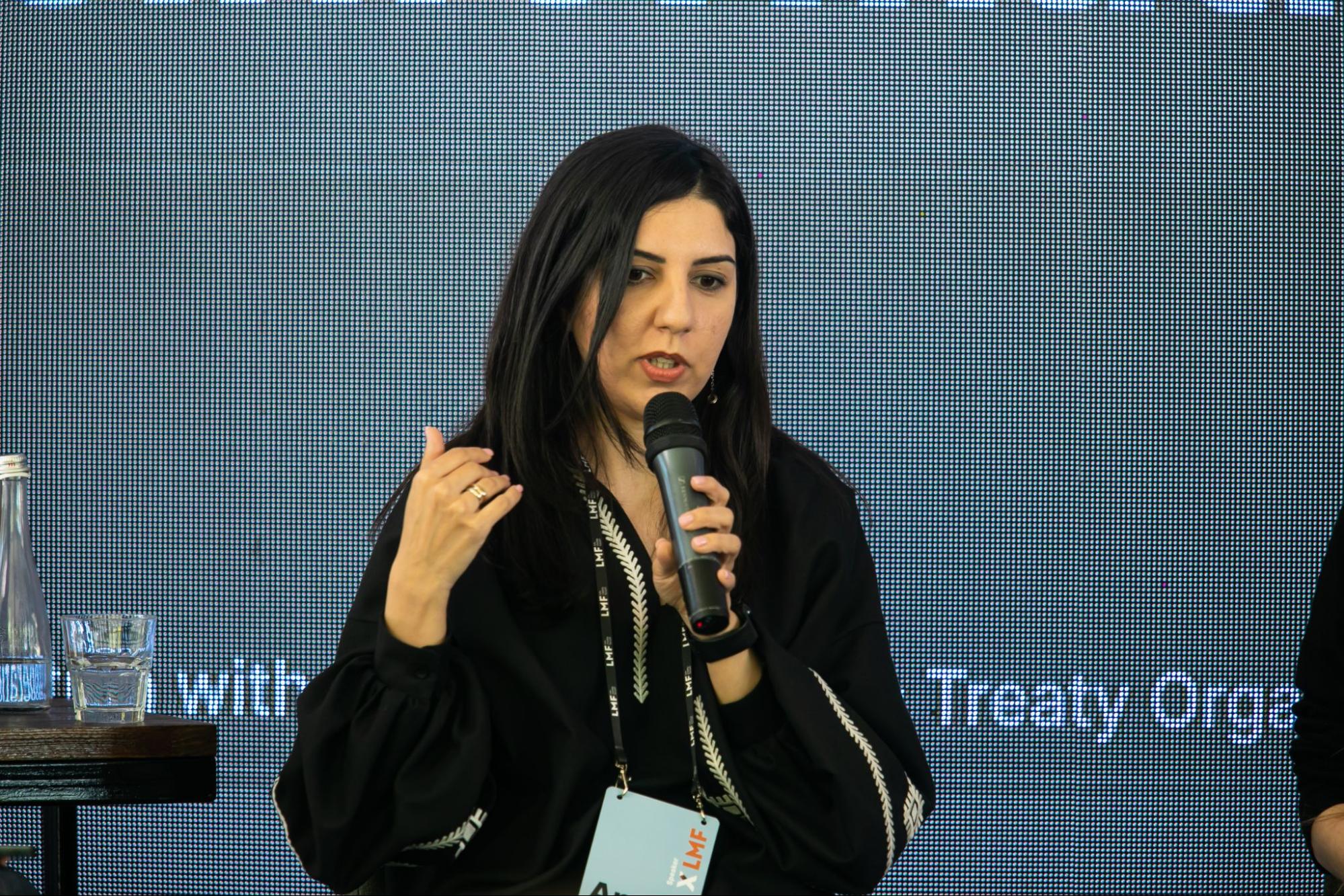
Anait Hoperia at the Lviv Media Forum. Photo: LMF
Lokot returns to the topic of monitoring hostile disinformation and emphasizes that continuous monitoring is not just about collecting data every day. It also allows you to see long-term trends, such as when certain topics and disinformation subside and when they re-emerge.
The expert explains that this is what happened at the beginning of a full-scale invasion. Disinformation related to the war and Russia's attacks on Ukraine spiked starting on February 22, 2022, then declined until the summer of 2023, and then in November 2023, we saw this explosion of war-centered disinformation narrative again.
According to Lokot, Russian disinformation, which tries to influence the course of the war, does not necessarily contain the word "war." That is, the Russians try to use every excuse, for example, farmers' protests in Poland, to reduce the rights of Ukrainian citizens or to put pressure on the Ukrainian government.
"You won't be able to see the connection between different events and types of misinformation if you don't monitor constantly. That is why it is necessary to look at the daily data and conduct a long-term analysis to see how a particular disinformation narrative develops and changes," Lokot adds.
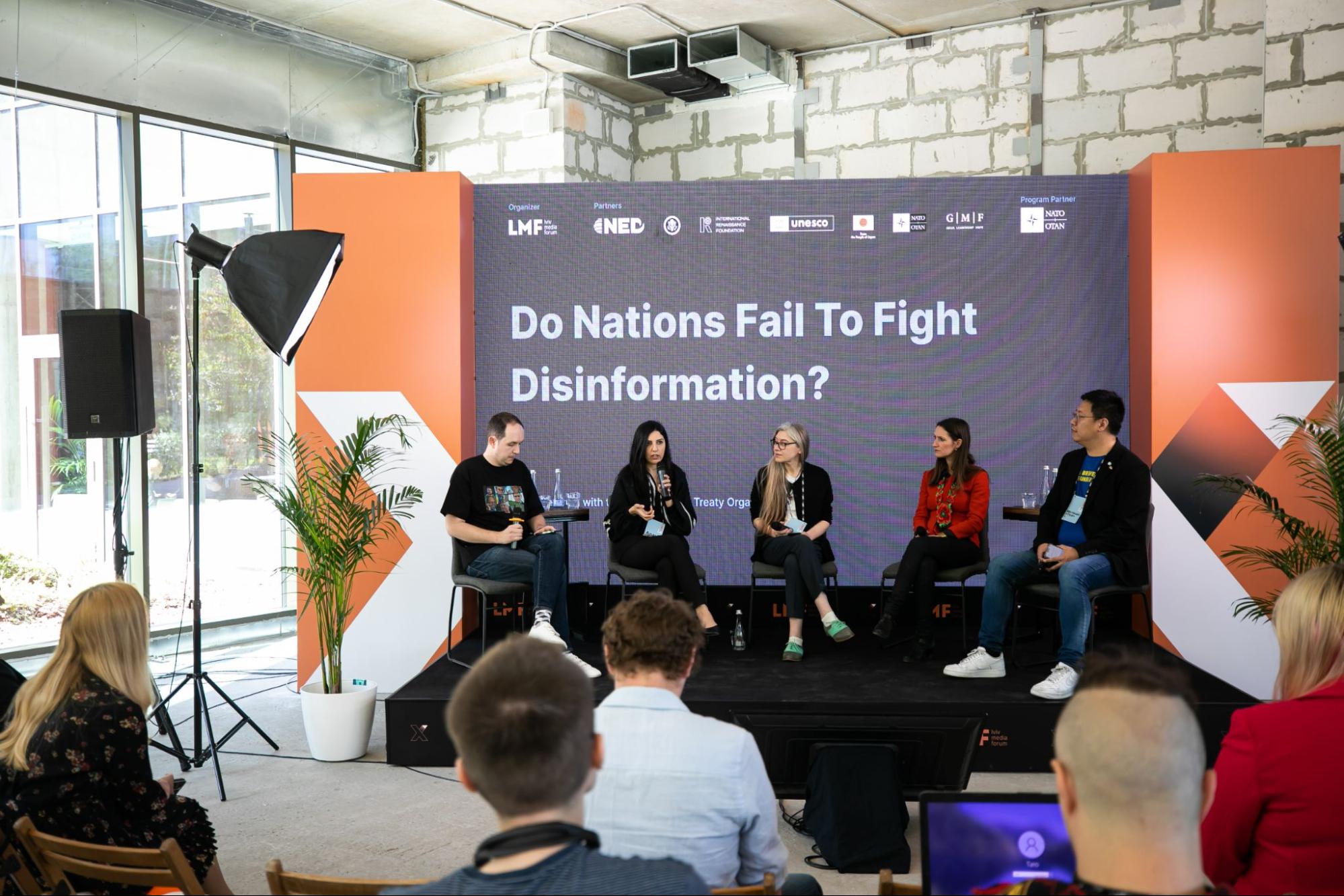
Discussion "Are states losing the fight against disinformation?". Photo: LMF
Experts also discussed various ways to counter hostile disinformation. Everyone agreed that it is not enough to refute every single fake or narrative. Only responding to the problem is ineffective, so it is better to play ahead.
Hoperia offered to create positive narratives. That is, not only to refute false negativity about one's country but also to create materials and projects that would talk about the positive issues. According to the expert, the combination of these two options for countering disinformation will work much better than just one of them.
Another way to combat disinformation is to work on the resilience of countries to hostile disinformation by developing the population's media literacy. Besancenot explains this using the example of Finland and the population's reaction to Russian propaganda.
Finland is so good at this that Russia Today doesn't even work there (the Russian state propaganda network of TV channels, — ed.). They just didn't have enough subscribers, and no one was interested in them, because the population is so prepared to resist propaganda. "It had to be closed not because the government banned it, but because the population is well prepared, so this is a lesson for many Western European countries," she says.
Lokot also agrees that it is crucial to prepare society for hostile information attacks but adds that it is also necessary to work at the level of individual communities.
"For example, in Ireland, where I work, we found that much misinformation is very often targeted at specific communities. It uses their fears and anxieties, particularly about forced migration and lack of economic support. These are really specific things for each community," she explains.
Therefore, experts should go to communities and, together with local organizations, develop information campaigns to counter disinformation. Particular attention should be paid to low-income communities, as they are more often the target of hostile disinformation. Also, Lokot advises people to be more vigilant during the election period, which is also a time to intensify propaganda.
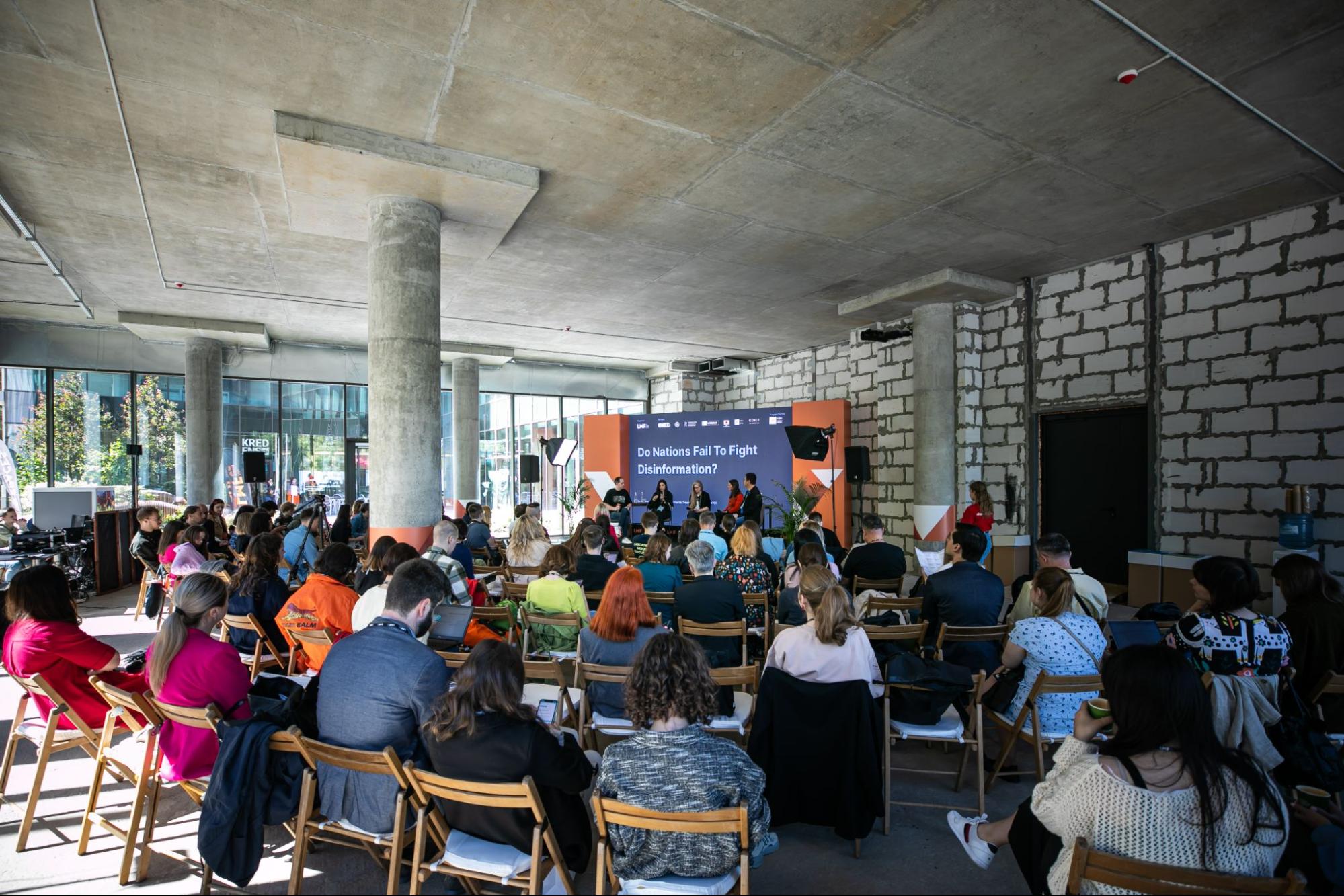
Discussion "Are states losing the fight against disinformation?" Photo: LMF
Disinformation campaigns don't even try to convince anyone of their lies, but their goal is to cause complete distrust of democracy, lack of appetite for voting, and global disgust with your institutions, and so on. "Therefore, I believe that it is extremely important for journalists to play their role in democratic countries and show what real journalistic work is and what quality methodology and strict ethics are," concludes Besancenot.



